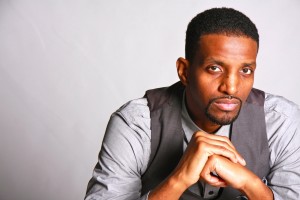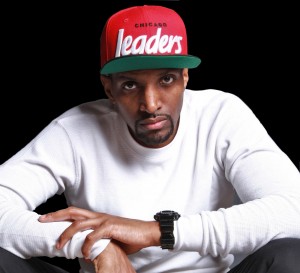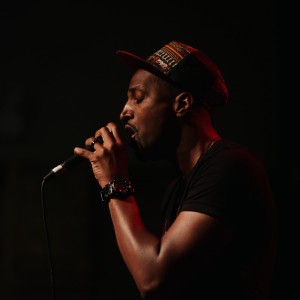It’s been months since I’ve written a blog due to personal reasons and I thank all of you for sticking with me. I’m not quite ready to delve into Sienna’s or my own life yet, but it is time to get back on the horse blog-wise and tackle social media once again. So without further ado…
On June 14, 2016, Mr. J. Ivy, poet, spoken word artist, author and Grammy winner, opened the State of America’s Fathers Summit with a powerful piece about his dad…or lack thereof. The Summit, co-hosted by Promundo and Fatherly and emceed by “Fatherly” co-founder, Simon Isaacs, revolved around a flagship report on “fatherhood in the United States (viewed) through a comprehensive lens, with a focus on equality and diversity. From looking at fathers’ roles in childcare and how they achieve work-life balance, to examining what it means to be a nonresident father, this report will take an honest look at what fatherhood means for American dads in 2016.” (Men-Care.org). And as interested as I was in the Summit, it was Mr. Ivy’s brutally honest account of his life without a father and his battle with depression that struck me the most. Upon the end of the Summit, I shakily went up to Mr. Ivy, (who’s worked with the likes of Kanye West, Bob Dylan, Dave Chappelle and Stevie Wonder) and overcame my nervous stutter long enough to ask 2 things: 1) What was his secret to dealing with depression and 2) Would he be willing to conduct an e-mail interview with me for my blog. He couldn’t have been kinder and below you can see the fruit of my beating my anxiety for a serious of moments. I owe Mr. Ivy a great deal of thanks.
1) What was your childhood like? How would you describe yourself as a child?
My childhood was a great balance of good and bad. More good, with being blessed with a loving family, a great school, and a good neighborhood, but the bad that did exist left a lasting impression. I grew up on the South Side of Chicago and with the rise of drugs and violence the love and good will in my neighborhood was becoming more and more interrupted. We walked our blocks, we went to school, older folks went to work with their guard constantly up in fear of what could happen. In the Chi you always watched your back not wanting to become another victim or statistic. And the end of the day, you just wanted to get home safe.
My home, however, was beginning to shift with drugs and alcohol becoming a dominant factor in my Dad’s life. My two brothers and I watched the transformation play out in the arguments and fights that our folks were having. Our peaceful abode too was too becoming more and more interrupted. That constant interruption eventually led to separation, which later led to divorce. From that point my Dad wasn’t around and my confidence, self worth, value, and even grades began to drop. I knew I was loved but the confusion was definitely present and having its effects.
2) When did you realize that you were a writer? What type of path did you take to get there?
After my folks split, our neighborhood was continuing to become more and more dangerous and my Mother worked day and night to save up to move us out to the South Suburbs. My junior year of high school, my English teacher, Ms. Argue, had the class write a poem for a homework assignment. Before then, I knew I was good at writing notes to girls, but I never looked at it as a gift. The next day I brought my poem to class like everyone else, but to our surprise, Ms. Argue made everyone read their poem in front of the class. I hated that moment, but I followed suit and rushed through my read. After class Ms. Argue pulled me to the side, gave me an A on my poem, and asked me to perform in an upcoming school talent show. Being shy and lacking confidence I didn’t do the show. A few weeks went by and Ms. Argue approached me again. She told me she had another show coming up and since I “faked her out” the last time, she wasn’t asking me this go around, she was making me do the show. I was nervous and scared, but I took her up on her challenge, performed in that show, and my first time ever on a stage I received a standing ovation. In that moment my life forever changed and my pursuit of writing and performing has been fueled by the curiosity to see what all I can do with it. But it was those early moments of recognition and love that pushed me to want to explore and discover more.
3) When did you first notice you had depression and how did it manifest itself?
I was in college, now a young man, now away from home, away from high school, away from family, away from friends, away from sports, away from the stage, away from my comfort zone when the walls came crashing down around me. Although I was surrounded by people, although college started off with a bang and a lot of fun, as the days went on, I became angrier and angrier, sadder and sadder, due to the fact that my Father wasn’t in my life. It had been close to 10 years since I last seen or spoke to him and I found myself sinking so deep because of it. My joy began to fade. I stopped going to work. I stopped going to class. I didn’t care about putting my best foot forward. I isolated myself from everyone. I was lost in this haze, not knowing how to get out of it.
4) How did your family/friends react to your depression?
No one reacted because I didn’t allow myself to show them that side. I got really good at wearing my “mask,” that phony, empty smile that would hopefully disguise the disgust I was feeling inside. I didn’t want to bring anyone else down so for a long time I kept it to myself. I sadly sat on my “island” wrestling with my thoughts and emotions.
5) Did you ever think of suicide?
I’ve had very, very low moments and I’ve deeply wondered why I was here and why was I going through the feelings that weighed me down, but I’ve always known how much of a blessing life is. I’ve always had a strong hope that I could get through those moments. I’ve always been extremely curious to see what life will eventually offer. I’ve absolutely had my moments where I just wanted to disappear and start over with a new life and new circumstances, but by the grace of God I’ve never reached the breaking point where I wanted or attempted to take my life.
6) Once you sought help, what tools did you use to successfully learn to live with your depression?
My help came by way of a conversation I had with my older cousin Julia. I don’t know why I decided to open up and talk to her about what I was feeling, but I’m glad I did. After hearing me out, she simply told me that I needed to learn how to forgive. She said that if I didn’t forgive my father, I was going to carry that pain with me for the rest of my life. Hearing the idea of forgiveness struck me deep. Envisioning feeling that low for a long period of time hit me deep. It made me heed to advice and ultimately it pushed me to forgive my Father and fight for my joy.
7) Do you do any exercises today to keep your mind free of negative thoughts? How do you fight them off?
Writing has been one of my best exercises. I have a quote that says, “If you don’t deal with your emotions, one day your emotions will deal with you.” And writing has proven itself to me of being a great way of dealing with those emotions. It’s a great way to cleanse the soul, a great way of getting out the issues so you can take a look at your thoughts, study them, and learn from them. It allows me to breath. It allows me to hear my soul and my higher self. It centers me, shifts my focus, and reminds me to be grateful for all that I do have.
8) What advice would you give to someone with depression?
Breathe. Breathe. Breathe. We’ve been blessed with so much. There is so much we’re capable of. So much you’re capable of. Fight to refocus your thoughts. Workout. Ride a bike. Do things you love to do. You deserve to be happy and anything thoughts that tell you otherwise need to be dismissed. Surround yourself with people you love. If you can’t help yourself, do what you can to help others. Depression is such a selfish act. Depression is all about “me” and how “I” feel, but when you extend love to others you redirect your feelings, which in turn lifts you up over the storm. The sun is still shining. The sun is always shining. We just have to remember to remove the shade that we’ve cast on our days.
9) What advice would you give to an aspiring writer?
Write as much as possible. Write down every thought and idea. When the energy hits you don’t let it past. Don’t put it off to later. And most importantly don’t be afraid to be free in your creativity. The best writers are those who are the most fearless, those who aren’t afraid to bend and stretch their thoughts, those who aren’t concerned with others think. Zone out, listen, get it out, and share. If you love it, others will too. Write ON!!
10) What is your definition of masculinity? What do you think society has done to prevent men from exhibiting emotions?
My definition of masculinity is sacrificing selfish wants and needs in order to take care, protect, and provide for your love ones. We’ve been taught that “real” men don’t cry or show emotions, but I strongly disagree with the idea of showing your feelings takes away from your manhood. In my opinion it makes you’re more of a man. It exhibits strength, leadership, and fortitude. There isn’t one perfect model of what a man is suppose to look like or act, but when it comes to the best men I know, they all work hard to take care of their love ones.
11) While you’re not a father yourself, I do recall you talking about breaking the cycle which is something I’m trying to do. Tell us about your mission to “break the cycle” and what’s going on in both your life and career at the moment?
No, I’m not a father yet. I really look forward to that day and that blessing. Until then, I’ll continue to prepare for that moment. Right now, I’ve been moving around a lot with my poetry, performing and speaking at different engagements, writing for new projects, working on new music, and steadily moving forward with The National Dear Father Movement (www.DearFatherLetters.com). The mission is, “One Million Letters Written, One Million Hearts Healed.” And through my shows, the audio book and album, which is set to be released soon, a classroom curriculum for the book “Dear Father: Breaking the Cycle of Pain,” and community engagement, myself and my team have been using these tools to raise awareness about The POWER of Forgiveness. Forgiveness has proven to be such a useful tool in my life, along with the art of writing. With forgiveness and writing as the focal point, we’re on a mission to continue to inspire this idea of healing and not allowing Your Past to Kill Your Future. The more healing we inspire in our communities, the more we will be able to truly Break the Cycle of Pain and rest, and work with joy on our side and in our hearts.
Once more I’d like to thank Mr. Ivy for agreeing to this interview and as I hope you’ve seen, he’s an inspiration for anyone dealing with mental illness and anyone who grew up without a father.
Please watch his incredible performance of “Dear Father” from HBO’s “Def Poetry”:



